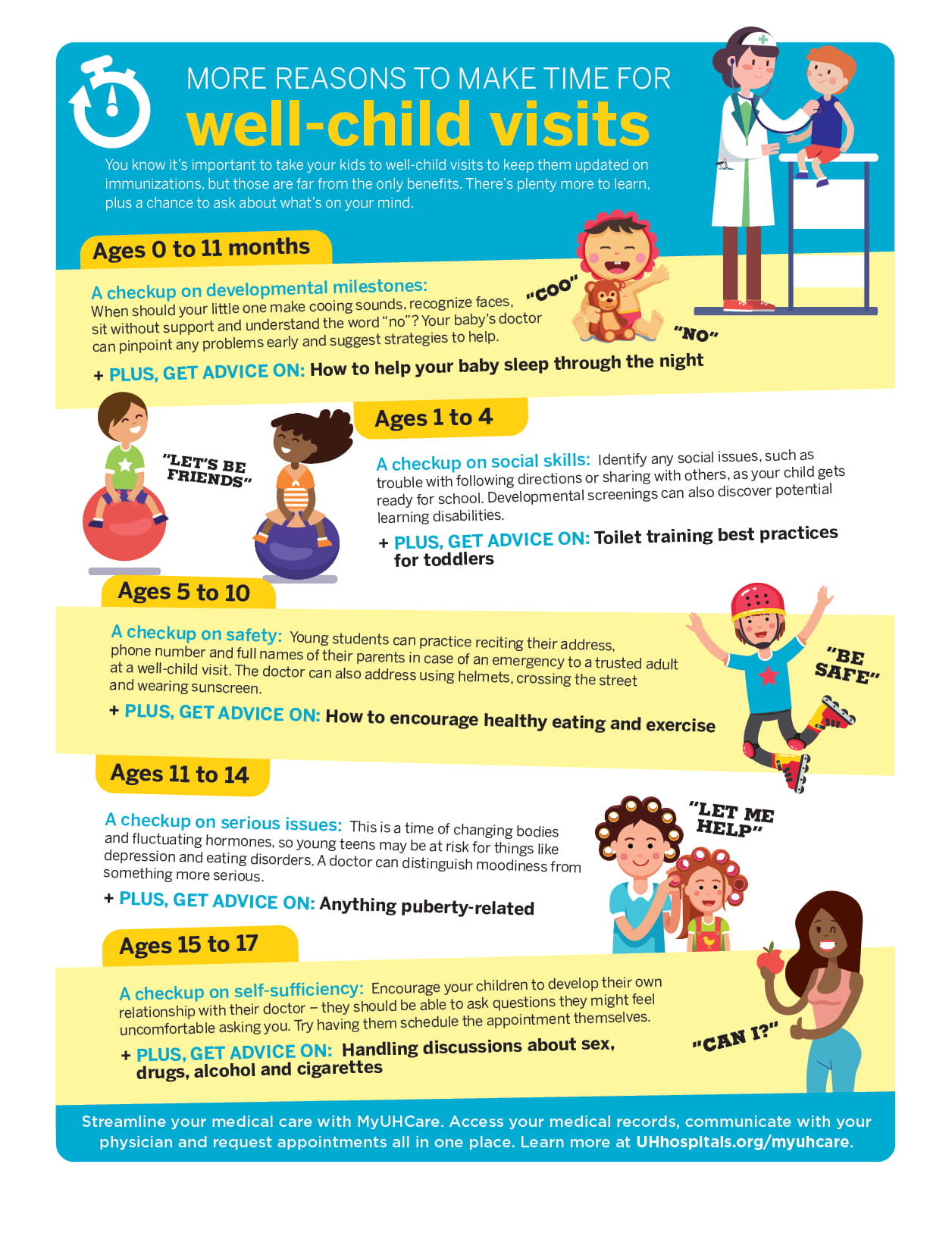Top Reasons to Make Time for Well-Child Visits
November 11, 2019
 University Hospitals Rainbow Babies & Children'sExperts in Children's Health
University Hospitals Rainbow Babies & Children'sExperts in Children's Health

More Reasons to Make Time for Well-Child Visits
You know it’s important to take your kids to well-child visits to keep them updated on immunizations, but those are far from the only benefits. There’s plenty more to learn, plus a chance to ask about what’s on your mind.
Ages 0 to 11 months
A checkup on developmental milestones: when should you little one making cooing sounds, recognize faces, sit without support and understand the word “no”? Your baby’s doctor can pinpoint any problems early and suggest strategies to help.
Plus, get advice on: how to help your baby sleep through the night.
Ages 1 to 4
A checkup on social skills: Identify any social issues, such as trouble with following directions or sharing with others, as your child gets ready for school Developmental screenings can also discover potential learning disabilities.
Plus, get advice on: Toilet training best practices for toddlers.
Ages 5 to 10
A checkup on safety: Young students can practice reciting their address, phone number and full names of their parents in case of an emergency to a trusted adult at a well-child visit. The doctor can also address using helmets, crossing the street and wearing sunscreen.
Plus, get advice on: How to encourage healthy eating and exercise.
Ages 11 to 14
A checkup on serious issues: This is a time of changing bodies and fluctuating hormones, so young teens may be at risk for things like depression and eating disorders. A doctor can distinguish moodiness from something more serious.
Plus, get advice on: Anything puberty-related.
Ages 15 to 17
A checkup on self-sufficiency: Encourage your children to develop their own relationship with their doctor/ They should be able to ask questions they might feel uncomfortable asking you. Try having them schedule the appointment themselves.
Plus, get advice on: Handling discussions about sex, drugs, alcohol and cigarettes.


